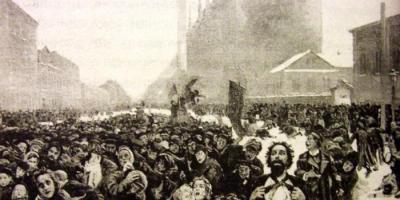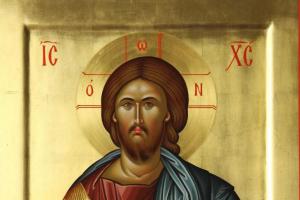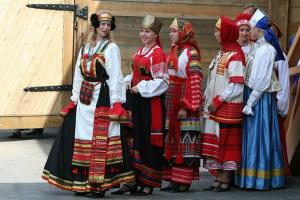What is good for a Russian is death for a German
Russian folk saying
In our desire to live like in Europe, we have completely stopped thinking about the topic: do we need European values and what, strictly speaking, are they?
Let's start with the concept itself - European values. Wikipedia gives us the following definition: European values are a set of basic principles for the organization of family, society and the state, political-economic, legal, cultural, ethical and other norms, uniting a significant majority of European residents, serving as the basis of their identity. There is even a list of such values. It is written in the Lisbon Treaty on the principles of existence of the European Union:
respect for human dignity, freedom, democracy, equality, the rule of law and respect for human rights, including the rights of persons belonging to minorities. These values are shared by the entirety of Member States, which is characterized by pluralism, non-discrimination, tolerance, fairness, solidarity and equality between women and men.
It would seem like wonderful ideas. It is on these principles that the European Union was founded. It is these principles that underlie the ideology of European countries. It is from the position of these principles that Europe determines its attitude towards other countries and their actions.
Let's take a closer look at each point separately.
1. Respect for human dignity
. No questions.
2. Liberty
. Here, perhaps, we need to make a reservation. Freedom cannot be unlimited. One person's freedom ends where another person's freedom begins. You can write a philosophical treatise on this topic, and questions will still remain, because it is impossible to write instructions on freedom. Therefore, the inclusion of such a vague concept as “freedom” in the list of priorities seems very controversial.
3. Democracy
. Again, what is meant by the word “democracy”? Literal meaning of "power of the people"? Or specific methods for electing the head of state? Judging by the way the United States and Europe are implanting “democracy” in other countries, there can be no talk of any kind of people’s power here. Democracy here means the regime that suits the “civilized world,” as the United States and Europe have dubbed themselves. No one takes the opinion of the people in these countries into account. For example, from the point of view of the “civilized world” there is no democracy in Russia. And the fact that the country’s president enjoys the support of the majority of the population is of no interest to anyone.
4. Equality
. By and large - yes. But in real life this is impossible. People are initially born unequal. Unequal in physical and mental development, unequal in their capabilities. And to pretend that a mentally retarded person will be able to realize himself in the intellectual sphere is pure hypocrisy. The same applies to physical development. Equality is good. But you still need to give honest answers to questions about equal opportunities for all people.
5. Law supremacy
. I agree 100%. If there is a law, then all actions must comply with it. The main thing is that all citizens are equal before the law, regardless of position and financial status. All. From a tramp to a head of state. No exceptions.
6. Respect for human rights, including the rights of persons belonging to minorities
. There's a bomb here. Let's start with something simple. National minorities. Almost always, good intentions of caring for minorities turn into discrimination against the majority. National minorities are so protected by laws on all sides that there is no longer any talk of equality. Getting a job or studying is a priority for national minorities, distribution of public goods is the same situation. And so it is in everything. The very mention of minorities is fundamentally incorrect and violates the proclaimed principle of equality.
Now the most sensitive topic is sexual minorities. The very separation of these people into separate groups is surprising. In public life, so-called sexual orientation has no meaning. And what a person does in his free time should not worry anyone, the main thing is that it is within the law. As the unforgettable Faina Ranevskaya said: “Everyone is free to do as he pleases with his ass.”
What picture do we see in real life in the “civilized world”? Wrong sexual orientation (and it is wrong, since it contradicts the nature of not only humans, but the entire living world on Earth) is declared an absolutely normal phenomenon. In “enlightened Europe” it has already reached the point where schools have introduced compulsory sex education for children, during which teachers encourage children to decide for themselves about their sexual orientation. It turns out that instead of bringing the pure, bright, eternal to children, teachers simply simply cripple the children's psyche. Instead of treating homosexuality as a mental illness, it is being vaccinated in completely healthy people. This is either stupidity or a conspiracy to genocide entire nations, because same-sex couples are not capable of giving birth to offspring.
7. Equality between men and women
. Applicable only in limited area. A woman cannot and should not do physically difficult work. A man cannot give birth to children and then feed them. And there are many things that one cannot or should not do for another. Gender equality is a harmful weed idea that originated at the end of the 19th century in the heads of childless, depraved revolutionary ladies. History has clearly shown that all these revolutionary ideas can only bring destruction and pain. Therefore, you should not try to implement them again.
What do we have as a bottom line from these very “European values”? Elementary concepts known since the time of King Solomon about the need to live according to the law? Perhaps yes. Attempts to change the consciousness of society by imposing the notorious “tolerance” themselves are capable of destroying this society. And such postulates must be treated very critically. Life should take its course; it itself creates the necessary rules by which society lives. It is impossible to forcefully and against the will of people to improve their lives. As we know, the road to hell is paved with good intentions.
Register to leave comments without verification
The problem with our “Western values” is not the content of these values themselves, although some of them are being questioned today. The real problem is the triumphalism they acquired after the West's "victory" in the Cold War, and this dangerous triumphalism continues to this day. We have finally convinced ourselves that the whole world dreams of what we have already achieved, and, therefore, we can use any methods, including the most cruel and bloody, as well as secret operations, to spread and establish our values.
We have convinced ourselves that we have the right to do this, we tell ourselves that the end justifies the means. Therefore, we turn a blind eye to the side effects, so to speak, and continue to fulfill our noble and righteous mission. “As a result of this distorted view, so-called “bleeding-heart liberals” are emerging, calling for a humane solution to a colossal humanitarian crisis while at the same time intensifying NATO bombing,” Erlanger writes.
This is an insurmountable contradiction, based on the false idea that we have a responsibility to rid the world of the “bad guys” we don’t like and fill it with other “good guys” we love. We rarely think that this task may actually be impossible, or even, God forbid, that we are simply mistaken. Because, of course, Western values themselves are “true” in any case. Or, as historian Paul Robinson recently wrote in his blog on the failures of Western foreign policy: “The idea that Western foreign policy doctrine might itself be false has never been the subject of serious analysis. And this leads to increased cognitive dissonance. And, accordingly, disasters pile on top of each other.”
Even a person who is absolutely not interested in geopolitics, if asked about it, will answer that Western values are universal, the whole world strives for them, and attempts to spread these values are a noble mission. We all witnessed the massive celebration of the beginning of the Arab Spring, heard from all Western high stands. We were told that this was a great moment for democracy. Our values, we believed, had begun their triumphal march throughout the Middle East and North Africa. The process acquired unprecedented proportions, and tears of happiness appeared in everyone’s eyes just from the mere thought of it. It doesn't take a genius to understand today how it all turned out.
However, there is no significant difference between relatively ignorant people and those who should have complete information. I argued with New York Times columnist Roger Cohen several months after he made the wildly dubious claim that Middle Eastern refugees were flocking to Europe to embrace Western values. It is for this reason, he wrote, that they do not rush, for example, to Russia. I objected that if Russia were located on the opposite shore of the Mediterranean Sea, where Greece and Italy are, they would try to get into Russia. I argued that Western values have little, if anything, to do with the reasons that drive so many people to make such a dangerous journey to Europe. If it were Western values that attracted them, I wrote, we would not have half the problems with integration and assimilation that constantly arise between the indigenous population and immigrants from the Middle East and North Africa that countries like Britain, France and Sweden have to face. .
I think it is quite clear that most of today's refugees would not be trying to reach Europe if their homes, towns and villages had not been destroyed. These destructions were the consequences of the civil war, greatly amplified by various NATO “humanitarian interventions.”
Stephen Erlanger emphasizes that one of the significant features of today's China, which is a combination of state capitalism and communism, is that it has shown no interest in spreading its own model throughout the world. “China compromises with the outside world for its own interests, clearly demarcated by moral values, and shows virtually no proselytism.”
The above is true, according to Erlanger, in relation to Russia. Russia, which is characterized by both authoritarianism and democracy, is interested in its near abroad, that is, countries that, for obvious reasons, are connected with it by a common language and culture. In other words, with places where people feel (and actually are) Russian.
This does not necessarily mean that Putin intends to carry out some historical mission of conquering the Baltic and restoring the former glory and power of the Soviet Union, as Barack Obama recently stated. This simply means that there are certain regions that Moscow considers as part of its sphere of influence, and, therefore, reacts more actively to all events that occur there. The problem is that Washington is absolutely convinced that America is the only country that has the right to a sphere of influence, and any point on the globe can be included in this sphere of influence at any time. At the same time, Moscow, from the American point of view, is simply not granted such a right, even close to its own borders.
More broadly, Russia, like China, has no interest in spreading its model of governance or cultural values to the rest of the world. Its own recent history makes it clear that this kind of imperialism simply does not work. This is why we hear so many statements from the Kremlin about the importance of a multipolar world order and international structures based on mutual respect, and not on dictate and the actual transfer of part of sovereignty to the self-proclaimed world leader.
Western leaders and politicians are unwilling to accept the fact that there may be countries and territories where a completely different model operates, and at the same time their continuous declarations of superiority are mixed with hypocrisy that is almost impossible to bear. While calling for one thing, they simultaneously do something completely different. Do what we say, don't do what we do! Forcibly imposing one’s values and “democracy” on other cultures that either do not want them or are not ready to accept them does not seem very democratic, to put it mildly.
Erlanger quotes American cultural historian Jacques Barzin: “Democracy cannot be established from the outside. It is formed depending on a combination of numerous elements and conditions. It cannot be copied from another people living nearby in a particular region. It cannot be brought by foreigners, and perhaps attempts to establish it from within through the efforts of dedicated citizens of the country will not lead to success.”
One way or another, there is something that Western leaders never talk about: even if a country already has democracy or some semblance of it, the West can forget about it at any time if it doesn’t like the regime. Democracy, apparently, immediately evaporates somewhere and appears again only when Western leaders want it. If the “right candidate” wins the election, this is a victory for democracy. If a politician undesirable for the West is elected, he must immediately be removed from power in the name, as you might guess, of freedom and democracy.
Not only democracy, but also state borders have a similar property of suddenly disappearing at the right moment. When US or Western interests are at stake, borders may well evaporate. And in fact, the White House once proudly declared that it did not intend to “respect the borders” of Syria when it found it necessary to intervene uninvited in the civil conflict on its territory. However, a few months later the whole world was talking about the border violation in Crimea.
Western interests are always legitimate, transparent and highly moral. The interests of Russia are always illegitimate, inexplicable and untenable from a moral point of view. This is the “general line” that the West stubbornly adheres to.
The author, Stephen Erlanger, is an American international journalist who has worked in more than 120 different countries. Currently, he is the London bureau chief for the newspaper "The New York Times».
Inspired by the "Duel" Kurginyan-Zlobin.
If I were standing opposite Zlobin, the first thing I would ask would be: “Why do you think that Western values are really supported by the population, politicians and administration of the West?” I would say a lot of things, in fact, because every liberal PHRASE that was heard on this show caused me dissonance with reality. Our liberals are either so naive or so cunning that they consider what is proclaimed to be reality.
Oddly enough, the majority of applications to the ECHR regarding human rights violations are from Russian citizens. Do you think this is because human rights are violated in Russia, but in the EU everything is orderly and noble? Not at all. It’s just that EU citizens have forgotten how to insist on their rights. They, like sheep, were taught only to humbly await death and allow themselves to be cut to the last hair. That is why we are surprised to see how they are not outraged by the fact that their own money goes to feed healthy men who will never be able to work, because the Dutch responded to the rape of European women with a march of European men in skirts, but fake rape the son of a Congolese minister led to mass protests, fires and looting in France.
Western values are only a means for processing the masses, cutting their hair, the emergence of new markets and suppressing protests regarding the release of the next tax “for bribing the President.”
I am surprised and touched by the naivety of the same Kurginyan, who, when asked a question about a country where there is real democracy, named France. A-ha! France, where the voting system is tailored to “The National Front should not win.” Hollande promised to replace her, but this was before he was elected President, and then he conveniently forgot everything.
What kind of democracy can we talk about if the support of the President is 4%??? Normal people would have already done impeachment, but we are not looking for easy ways, we have forgotten how to fight for our rights. That’s why we allow politicians and their mongrels to mock us, tearing out our hair by the roots on the Internet.
So what are the notorious European values?
Let's not reinvent the wheel and turn to the primary sources. In 2012, at the request of the European Commission, a Report on European Values was published. In 2012, the European Commission asked itself a question: in order to give more or less understandable forecasts of people’s reactions to their often stupid innovations, you need to know how much the people will allow themselves to be pushed in this or that area. If you dare to click on the report itself, you will read that the original question sounded different, but the essence and background do not change.
Firstly, the European Commission thought: have European values changed after the crisis?
Both on! And we are told that European values are an unshakable postulate with a centuries-old history. And it turns out that as soon as the elite loses a little money, values change. Apparently, those are still values, since they depend on the ringing of coins (now it’s clear why they lost all the wars with Russia?)
 Basically, they asked themselves three questions:
Basically, they asked themselves three questions:
1. Proximity of European countries to European values.
(WHAT??? This is one gang, all united front and all that! Well, at least they officially declare it... No, or what?)
2. What values are most important to Europeans?? Which of them represent the ideal of happiness? And to what extent do European values reflect personal values? (??? And Merkel is fooling us here about a universal round dance and integrity??? )
3, Economic and social values of Europeans- how they change. (Hmmm... That is, the clinking of coins is a European value. I laugh wildly about Zlobin’s definition of European values in “The Duel” as tolerance, human rights and something else that he himself does not believe in, apparently .But!!!Now you understand that economic values for Europeans are values that come after social ones, and not tolerance-democracy)
Here they tried to understand
- How do people feel about government intervention? A
(in the affairs of the people).
This is another formulation, of course, since the state is a worker hired by the people, but here, it turns out, the state and the people are two different groups.
- How does this all relate to free competition??
If anyone still doesn’t understand, we’re all about European values here, but we haven’t gotten to tolerance yet
- Do Europeans prefer equality to freedom?
That is, “flies - separately, cutlets - separately”? Freedom and equality cannot exist together?
- Is the justice system strict enough?
Interestingly, they did not consider inequality in legal systems and their relationship to elites and people.
- How do people see the contribution of immigrants to society?
It will be interesting to see how people view it now. after the influx of a couple of new millions.
- What to give preference to: environment or growth?
- and, finally, what is the ratio of rest and work?
“Finally” is a translation, so if anyone doesn’t understand: regarding the extent to which a person has the opportunity to relax, Europeans are officially the last thing to worry about. This is less important than the contribution of migrants.
There is no point in translating the entire Eurobarometer: it is 4 volumes. Not "Harry Potter", you know, so, sorry, let's limit ourselves to conclusions.
32,728 people were interviewed, that is, about 1,000 people per country. Let's assume that the sample is representative. Why is it permissible? As a person who has the background to talk about this, I admit that in view of so many criteria, they asked around two people per category of the population, that is, zero without a stick in the sense of representativeness. Well, it’s not for us to judge them; what has grown has grown.
So, essentially.
1. Proximity of European countries to European values.
In the first lines of the manuscript we are faced with what is called the manipulation of consciousness: the relative majority of Europeans believe that their values are similar. Relatively the majority. That is, 49% out of 100. And 42% believe that there is nothing of the kind. A logical person would write that “opinion is divided”, since the smallness of the survey group units gives a percentage error of 20-40% (I proceed from the fact that people of different ages, professions, views, orientations, religions, etc. were surveyed). Moreover, since the criteria were “completely coincide”, “sufficiently coincide” and “coincide more or less”, of the 49% who agreed, 46% indicated that they coincided sufficiently, and 3% - as “more or less”...
But we are not looking for easy ways, that’s why “the majority”.
Note that in 2008, that is, 1-3 years after the famous accession of new countries, 54% of citizens of the “old” countries suspected that they were recruiting members of similar values into the union.
"It gives the impression"(literal translation) that the “old” 16 members have similar values than the new ones, but that their sobering-up stations work better: instead of 54% in 2004, only 47% of the “old Europeans” began to believe in the similarity of European values in 2012... But Slovaks (70%), Poles (68%), Bulgarians (63%) and Czechs (63%) firmly believe that they are much closer to European values than the Europeans of Old Europe! We run ahead of the locomotive, as they say. True, this does not prevent these same countries from spitting in the direction of Brussels when it comes to accepting refugees. I’m not sure that among AS readers there is at least 1 person who cannot explain this situation.
However, along with the promoters of European values Slovakia and Poland (now Polish and Slovak nationalists and anti-LGBT people are tense), there are also backward Latvia (34%), Portugal (37%), France (38%) and Spain (40%), who believe that their values are absolutely different from those of Europe.
But there are also surprising (for Europeans and obvious for AS) trends - 23% of Portuguese distanced themselves from European values over 4 years (only 37% remained relatively religious), 15% of Greeks (43% still believed that they would receive a loan), 18% Spaniards, 16% of Cypriots (although in 2012, 52% of Cypriots still believed that Merkel would help them financially).
The people who most believed that their values were close to the pan-European ones were Austria, which was given money, and Poland, which was apparently promised a share in the division of Ukrainian oil shale just in 2012.
As we see, for some reason, faith in the European values of the people of Europe is directly proportional to the amount of money received by European states from the EU and decreases with the approach of the crisis, when they do not receive money. And not at all with “European tolerance”. But those who pay are disappointed.
As always, it is easier for young people to sell nonsense, so they believe more that their values are similar to European ones. Their parents, people wise with experience and problems of feeding Euro-youth, are skeptical about tolerance as an opportunity to prepare Euro-borscht. Naturally, students pay tribute to European values. That is, the state’s ability to exploit the brains of the state increases with the level of education, and not with television viewing. The working class sends values to hell, while those who can make money from the working class think that they have found a gold mine in European values.
European Union = Trump in the USA 2.0, in general.
64% of Europeans think their vote counts in Europe. Well, as you wish, gentlemen, but elections in the EU are not filmed on video cameras, so I can attribute this exclusively to the increased stupidity of Europeans.... “And then the card failed me,” as they say. In countries where a lot of companies sell people contracts that need to be signed before reading (and are successful) - this is for you to reflect on the Central European mind and ingenuity.
And here we come to the European values themselves.
If the world of the East for many centuries maintained the stability of civilizational foundations (neither the invasions of nomadic tribes nor interstate clashes could shake them), then the West experienced several “waves” of civilizational development.
You learned about antiquity, the Christian civilization of the Middle Ages, and industrial civilization from history. Each of these societies had unique features and acted as an independent socio-cultural community - a civilization. At the same time, they can be considered as stages in the formation of a unified civilization of the West - the second side of the bipolar world.
Today, with the concept of “Western society” we associate such features as a market economy, private property protected by law, civil society, democracy, the rule of law, class stratification, mass production, mass culture. We will talk in more detail about how these features were formed in different historical eras in the following paragraphs. Here we will dwell on the most significant spiritual guidelines of Western society: the perception of the world as a whole and one’s place in it, the attitude towards work and wealth, life aspirations and assessment of prospects.
We remember that one of the ideological foundations of the Eastern worldview was the idea of a single world order, which applies equally to all things, including humans. Initially, the “big one” did not frighten the ancient Chinese or Japanese. On the contrary, they sought to merge with him, to become like him. Another attitude towards primordial chaos in the ancient Greeks. Chaos is a formless state of the world, a void in which everything is born and everything disappears. The ancient Romans generally perceived chaos as hell - an all-consuming abyss. This gave rise to the fear of death, which was tantamount to plunging into an ominous abyss.
In the minds of people, the desire inevitably arose to overcome chaos, opposing it to an ordered world - space. And this organized world cannot arise without efforts on the part of man and society. On the basis of this idea, some defining features of the Western mentality gradually emerged. Firstly, it is aimed at replacing perestroika. Centuries later, already in the conditions of an industrial society, this installation began to play a decisive role in the development of society and ensured the scientific, technical, economic and military power of the West.
Secondly, the beginning of a break between man and nature was laid. Man “fell out” of primordiality and broke with it. Subsequently, on this basis, a desire arose to conquer nature, in turn, creating a complex environmental problem for the modern world.
Thirdly, from the idea of the initial imperfection of the world, it followed that the ancient Greeks called “arche” - will, dominion, and not only over nature. Struggle in all its manifestations began to be perceived as an integral part of life. “Struggle is the father of everything and the king. It determined some to be gods, and others to be people, made some slaves, others free,” wrote the ancient Greek philosopher Heraclitus. In contrast to the Eastern idea of non-violence, the idea of the inevitability of “powerful” history began to assert itself.
The focus on transformation gradually led to a break with tradition. In Western society it took place in modern times. The past no longer has the same value as in traditional society. People are interested in the present and the future.
Fourthly, ancient Greek civilization gave impetus to a linear understanding of time (which did not interfere with existence and a cyclical idea of it), highlighting cause-and-effect relationships between phenomena as fundamental. “God... holds the beginning, end and middle of all things,” wrote the ancient Greek philosopher Plato. Thus, the world moves from some initial state to some final state. Based on the perception of time as a linear, directed process, the idea of progress was subsequently born.
Christianity, especially moral precepts, significantly influenced the formation of Western values. Thanks to them, new ethical standards common to all believers were introduced. A real revolution in people's views was made by Protestantism, which, as you know from the course of history, separated from Catholicism during the Reformation. Work, according to M. Weber, was equated to prayer (remember what Weber said about the importance of the ethics of Protestantism for the formation of a capitalist society). Under the influence of Protestantism, an attitude towards work began to form as the most important way of serving God, as a calling. Wealth accumulated as a result of labor can be considered godly only when the work is honest, and it is wealth that is used to expand production, and not for luxury and waste. The education system then began to promote the development of the entrepreneurial spirit. It was during the Reformation that many European countries introduced a system of compulsory education.
It is known that many American films are based on the story of how a “simple” American guy (or girl), thanks to determination, hard work, and self-confidence, rises to the pinnacle of material well-being and public recognition. This “great American dream,” which has inspired more than one young generation, contains important spiritual values of Western civilization and, above all, the high value of achievement and success. To overcome, to be able to, to achieve - this is what millions of people are aiming for. In addition, this dream also reflected such a principle of Western society as individualism, which presupposes the recognition of individual rights, its freedom, independence, and independence from the state.
Of course, the spiritual values of the West are not limited to those noted in this paragraph. But even a quick acquaintance with them shows that in many ways they are the opposite of the spiritual aspirations of the East. It turns out that the “meeting” of civilizations is being postponed?








